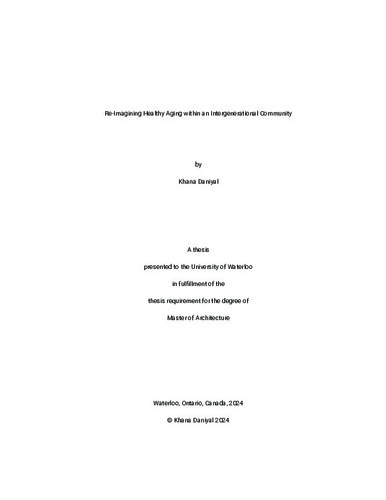| dc.description.abstract | There has been a demographic shift resulting in an increasing number of older people than younger people in the demographic pyramid. As a result, there is a strain on the number of resources available, such as senior specific homes, to accommodate the growing need for housing the elderly of our society. In addition, with ever-increasing prices in the real-estate market, general housing shortages, and the lack of affordable housing, low-income seniors have limited choices, in many cases, none.
Moreover, the central city as a place has today come to typically cater towards the younger generation, and especially young couples. Many families with children and older people choose to relocate to the suburbs. There are, however, more sustainable solutions as the present situation requires an overly heavy reliance on cars due to the spread of many amenities and resources in a low-density urban fabric. This thesis emphasizes a push toward more generationally shared living within the central city urban context. Options for some like the elderly are limited because in today’s real estate market they can’t find adequate housing to allow for healthy aging, so they are often forced to turn to senior-specific housing resulting in them being physically and socially isolated. Similarly, cities lack the space and shared affordability needed for families to grow in the urban context. Multi-generational housing set as a community hub is a potentially viable alternative choice to the current care models and existing housing. The aim of the thesis is to answer the question: how can older adults and their families fit into the urban context, and how can the young and old generations co-exist in a shared residential space?
The thesis analyzes different design and planning strategies to create an inclusive care community that supports continual aging. A design framework and strategies will be developed to propose an intergenerational community that supports healthy aging. This approach will be developed as a conceptual urban and architectural design that explores ways to facilitate care between all generations and create a shared space in the urban context of Toronto, one that encourages aging in place and social interaction between a diverse aging population and younger generations. The thesis outcome is an architectural community project that re-imagines healthcare, residential and mixed-use urban and building developments for every stage of life. | en |

